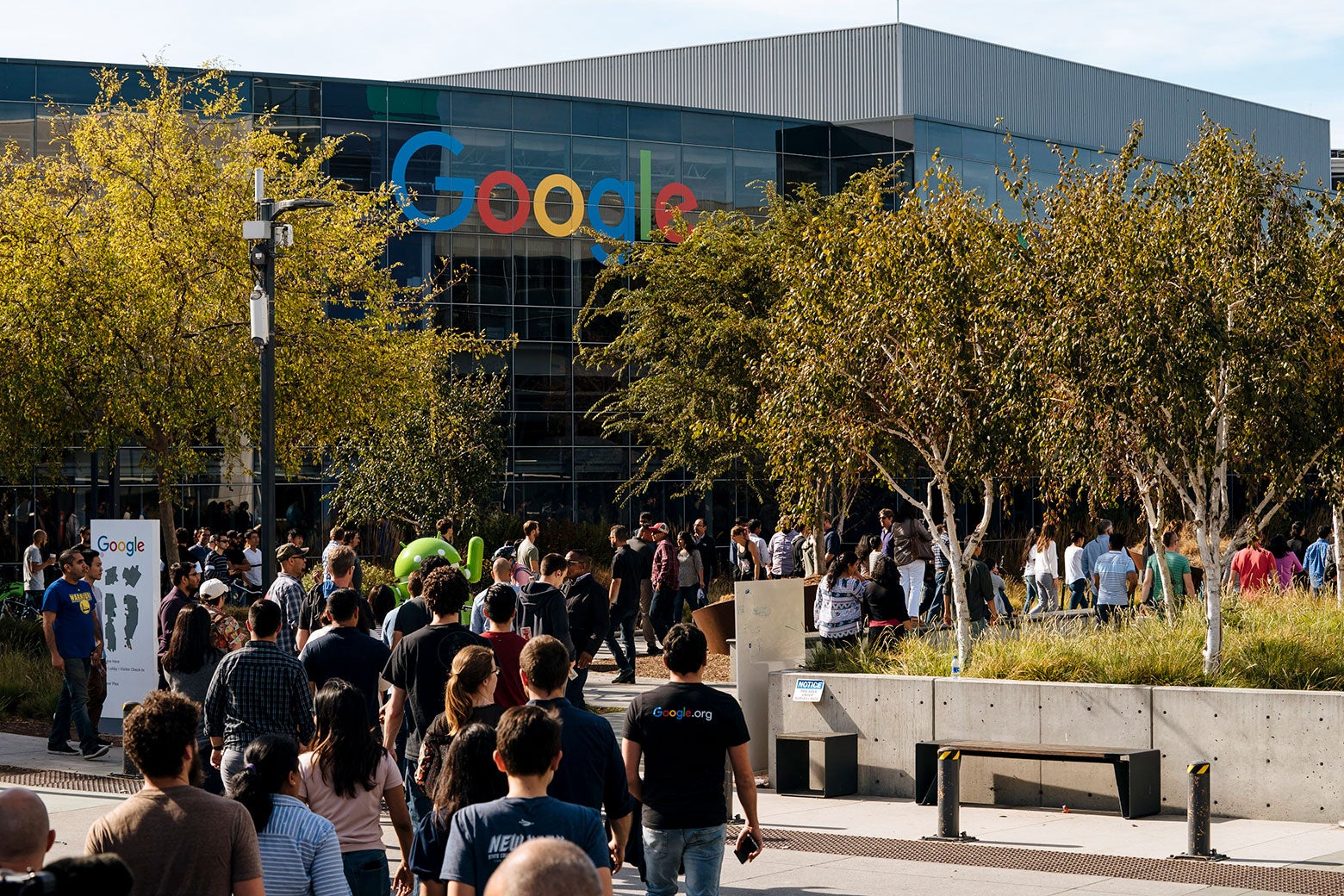In recent days, collective action by workers at companies like Facebook and Google has pressured these companies to back away from requiring mandatory arbitration of sexual harassment claims, allowing workers to have their day in court instead of forcing them to arbitrate these claims behind closed doors.
Workers across the country can and should build on this inspiring example, challenging mandated arbitration not only of sexual harassment claims but also of other claims of wrongdoing. In a time of vast economic inequality, where worker power is waning and employer power is growing, arbitration clauses are part of the problem. By exercising their right of collective action enshrined in federal labor law, workers can challenge the use of arbitration clauses and shift this imbalance of power.
The problem is that since the early 1990s, employers have frequently placed mandatory arbitration clauses in employment contracts. Many judges and scholars (myself included) read the federal statute dictating that courts enforce these clauses to explicitly exempt workers. But a narrow Supreme Court majority disagreed in 2001, opening the floodgates for potentially any dispute a worker has with her employer to be arbitrated if the contract says so.
This backdrop has allowed for secretive sexual harassment settlements to be awarded in arbitration, where proceedings aren’t public, where arbitrators need not give reasons to the public, and where privacy is the coin of the realm.
But the dramatic rise of worker arbitration has created many more problems. One study indicates that workers bringing claims against their employers in arbitration tend to fare worse than they do in courts, and another study indicates that parties use arbitration less than they would use courts to ferret out wrongdoing. It makes sense: Companies are repeat customers for arbitrators, whereas individual employees are not.
There’s another problem with keeping lawsuits out of court. Lawsuits in courts are part of how the public comes to understand and account for pervasive wrongdoing. Lawsuits also help to flesh out the vague words of statutes protecting workers, creating precedent that puts wrongdoers on notice. Finally, even lawsuits that fail because the law doesn’t reach the alleged wrongdoing can spark legislative reform to expand the scope of liability.
Thus, today, inequality is magnified by employers, who through arbitration can escape either liability or public reckoning not only for sexual harassment but also wage theft and the types of discrimination that leave workers jobless or in lower-paying positions.
The solution to this problem is worker collective action. Unfortunately, a narrow Supreme Court majority foreclosed one path of collective action this summer. The case was about how the federal arbitration statute intersects with the National Labor Relations Act’s protection of worker collective action. The plaintiffs argued that contracts denying them the right to arbitrate or litigate collectively denied them their right “to engage in concerted activities … for mutual aid or protection” under the NLRA. With Justice Neil Gorsuch writing the opinion, the 5–4 conservative majority disagreed, opining that the NLRA’s protection of collective action generally did not conflict with contracts banning collective arbitration or litigation.
The result is that courts must generally uphold arbitration contracts mandating that workers arbitrate disputes with their employers individually. This outcome is troubling because sometimes it can be difficult to be the lone voice alleging wrongdoing. And if the wrongdoing results in small damages for an individual employee but larger damages across employees, workers have a better shot of getting legal representation if they can sue or arbitrate together.
The courageous workers at Google and Facebook reveal another path, however. The path is not to challenge arbitration clauses at the time of hire, when most workers have no say over take-it-or-leave-it arbitration provisions in contracts. Instead, it is for existing workers together to employ the pressure to get the companies to back away from arbitration provisions. And to turn the tide against employer-mandated arbitration generally, it will take more than tech workers.
To be sure, it may be easier for 20,000 highly skilled Google employees to walk out over or protest arbitration clauses. After all, their talents protect them to an extent from being fired and make them marketable even if they are fired.
Less-powerful workers, however, are still protected in exercising collective action. The NLRA may not protect their ability to arbitrate together once the arbitration clause says otherwise. But it certainly and inarguably does guarantee workers’ rights to act collectively for mutual aid and protection.
The seminal examples of workers acting collectively for mutual aid and protection involve workers coming together to make demands to their employers about the conditions of employment. The National Labor Relations Board and courts have protected workers who leave work when the factory is freezing, who challenge their employer’s calculation of benefits, and who band together to argue for paid sick leave.
Nowadays, a core condition of the employment contract is whether workers can have their day in court when they believe their employer has violated the law. Right now, that condition all too often pushes workers out of court and into arbitration. But workers who come together to demand that mandatory arbitration be stripped out of their contracts are exercising basic rights of collective action that are protected by the NLRA. And employers are legally prohibited from firing or even disciplining those workers.
So workers, unite—to demand that your employers stop mandating arbitration. Your right to act together has long been enshrined in federal law. And by exercising that right, you can hold your employer to account publicly both for sexual harassment violations and other forms of discrimination and disempowerment.
